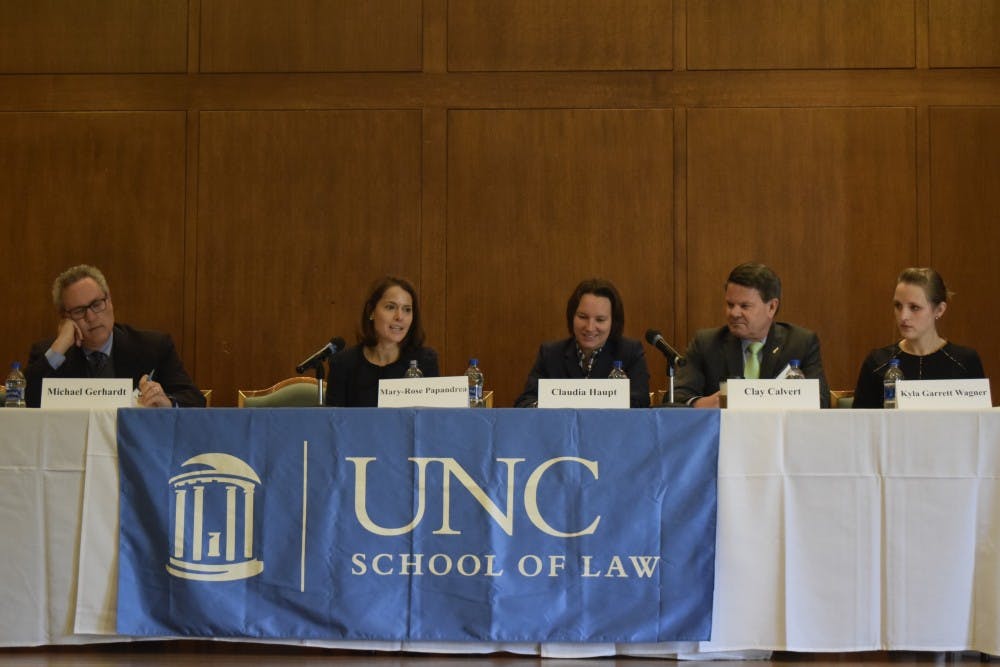The First Amendment Law Review, a student-edited legal journal at UNC, held its annual symposium on “Sex and the First Amendment” on Friday.
Scholars from across the country attended the symposium to participate in panels focusing on the intersection of sex with the freedom of expression, religion and the internet.
Following the first panel, "Sex and the Freedom of Expression," Mary Anne Case took the lead in the second panel of the day, titled “Sex and Religion.” Case, a professor at the University of Chicago Law School, discussed Justice Antonin Scalia’s use of language in specific court cases.
She discussed Romer v. Evans, a case dealing with Amendment Two and discrimination based on sexual orientation in Colorado. Case compared the language Scalia used with the language that Nazis used about those of the Jewish faith.
“The more you think about the relationship between what it is to be gay in Amendment Two's Colorado and Jewish in Nazi Germany, the more the parallels come out,” Case said.
The third panel of the symposium addressed the intersection of sex and the internet. Professor Mary Anne Franks of the University of Miami School of Law addressed free speech culture in her discussion.
“I want to talk about what I call sometimes the ‘First Amendment orthodoxy’ or the clichés about the freedom of speech that we often have, especially in popular understanding of free speech,” Franks said.
Franks continued with discussion on the impact of conversation about sex in cases of unauthorized distribution of sexually explicit imagery. She acknowledged that the objection to the circulation of these images revolves around free speech.
“As opposed to this vision of robust and uninhibited conversation about sex, what we often find is incredibly typical, outdated patriarchal assumptions about sex, and that tends to be most of what we talk about and emphasize,” Franks said. “The ability to share naked pictures of people without their consent has been presented as a free speech issue and that any attempts to try to regulate that conduct would be violations of freedom of speech.”



